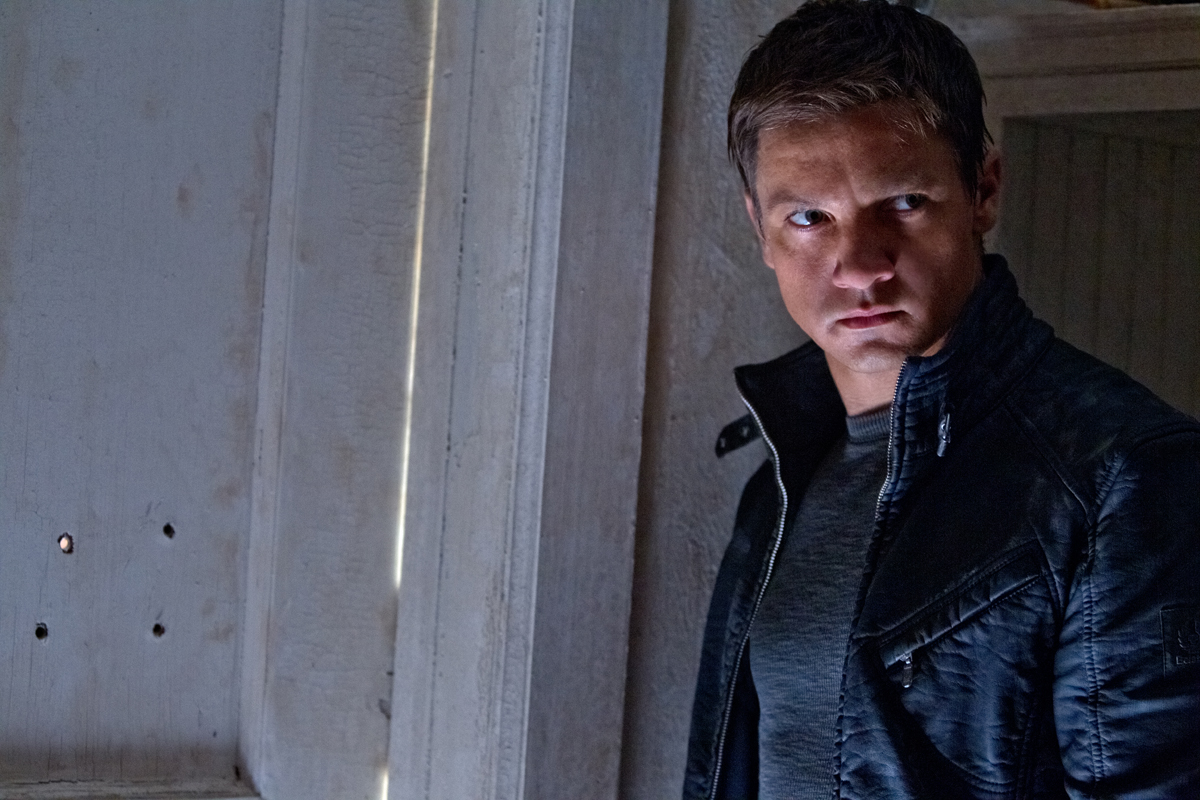The Bourne Legacy has pieces of a good story in it, it just cannot connect the dots. The biggest goal of the Bourne Legacy is to try to connect the previous trilogy to a bigger story within the US government. While casting the new lead and head villain correctly, The Bourne Legacy is far too long and mundane, and the chase sequences lack the kineticism that made Jason Bourne so special. Not the best start for the Aaron Cross (Jeremy Renner) era.
At the start of the Bourne Legacy, Matt Damon’s assassin is now a worldwide catastrophe. Aaron Cross (Renner) is dropped into the Alaskan wilderness as part of his new training program. With him is his allotment of pills, which help enhance his abilities. The drugs are made in a lab where Dr. Marta Shearing (Rachel Weisz) helps cultivate and distribute them, creating more Jason Bourne-like assassins. Col. Eric Byer (Edward Norton) discovers some cracks in the organization, and he is forced to eliminate everyone involved in the project. This process draws Aaron and Marta closer together and forces them to join forces and go on the run.
The Bourne Legacy is at its best when studying the spy process. Aaron’s quest and the CIA’s process provide the best sense of intrigue and tension in the movie. Paralleling the CIA and Cross trying to connect the dots, one step behind one another, provides way more tension than any of the chase scenes. Many of the situations Cross and Marta end up in are claustrophobic in nature, and congested with lots of people. The Bourne Legacy devises clever but logical escape routes for the pair using crowds as a major distraction. The CIA scenes using surveillance and dot connecting feels honest, and the directors ask the local police to corner and trap since trying to engage will lead to probable deaths. The Bourne Legacy has many flaws, but for the most part, Logic is not one of them.
The biggest failing of the screenplay is the mundanely executed chase scenes. The scenes are very long, and miss the logical ending points. Character development is put to the side to highlight these chases. Unfortunately, if character development were at a premium, even the most mundane chase scene is filled with stakes. In the Bourne Legacy’s case, the motorcycle scene features a couple that we partially care about followed by an assassin who is brought up 10 minutes before the chase starts.
Fortunately, the leads get cast correctly. Jeremy Renner is winning as Aaron Cross. Renner is an Oscar Nominee, so even with the weak back story here, he extracts the important information to showcase the urgency of his situation. Edward Norton is cold and calculating as the head of the CIA. He is severely underutilized in this film; there are some juicy subplots cut to tie Jason Bourne’s Legacy into the film. Hopefully they emphasize Norton and his connection to Renner in the future as they are engaging in the one scene they are in together. Rachel Weisz is fine as the female in distress; at least she is smart. Other characters fall by the way side, and generate no lasting interest for the audience.
The Bourne Legacy is more interested in Bourne than Legacy. Jeremy Renner is forced to answer more questions than celebrate his ascension to a leading man. Despite the open-ended ending, I hope Matt Damon agrees to be in the sequel. It would be a good show of faith in the franchise’s transition, and could provide an intriguing combination going forward. Until that time, the Bourne Legacy will be an incomplete vision, leaving you pretty unsatisfied.

